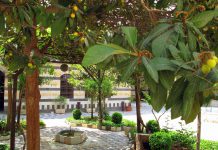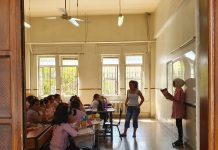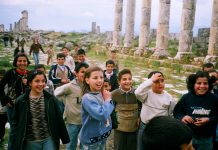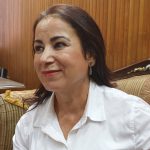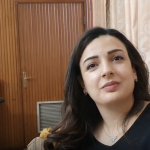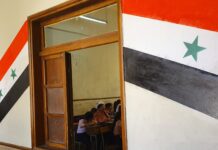Part 2: Tima Kurdi, author of ‘The Boy On The Beach’ (Simon & Schuster, 2018), speaks to Sarah Nachar and Susan Dirgham about:
- Women in Syria
- COVID-19 and Sanctions on Syria
- Syria – Our Good-Hearted Mother
Women In Syria Today
Tima describes the dramatic changes that have taken place since she grew up in Syria, when women mainly stayed at home while men went to work. Today, Tima explains, Syrian women are very different from then: women of all ages and backgrounds are working in Syria; they feel equal to men.
In Damascus, from her observations, women’s lives are very different to what people in the West imagine. In 2018, Tima attended her nephew’s graduation at a university in Damascus – it reminded her of a university in Canada. She was impressed and proud of the young women who were graduating.
Graduation 2014: Damascus University – Faculty of Architecture The above video uses the theme music from the American sit-com Friends. It is particularly poignant because just the year before – March 2013 – some of their fellow architecture students were killed in a mortar attack on the uni cafeteria.
COVID-19 And Sanctions On Syria
Tima Kurdi, “We went through a war for 9 years, but we survived. But now… no-one is allowed to help Syria because of the sanctions.”
At the time of this interview with Tima (19 June 2020), people in Syria were affected by COVID-19 and there had been efforts to restrict the movement of people to control the spread of the coronavirus. However, it was harsh American sanctions which were uppermost in Tima’s mind.
(See earlier Beloved Syria posts on COVID-19 and Sanctions – here and here.)
Tima explained how the sanctions are leading to deaths and great suffering. “We went through a war for 9 years, but we survived. But now… no-one is allowed to help Syria because of the sanctions.”
“I saw people who couldn’t afford to buy bread.”
While preparing this page for publishing, Tima drew our attention to Aaron Maté’s interview with American academic Joshua Landis, who detailed the impact US sanctions can have on Syria and its people. Below are extracts from the interview.
Reference: Pushback with Aaron Maté, published by The Grayzone, 21 August 2020.
Crushing US sanctions devastate Syria’s people and post-war reconstruction
In June, the US imposed its harshest sanctions on Syria to date, prompting the World Food Program (WFP) to warn of ‘mass starvation’ and another ‘mass exodus’.
The US Sanctions Law, known as the Caesar Act, openly states that it is ‘a strategy to deter foreign persons from entering into contracts related to reconstruction’ in government-held areas, where most Syrians live.
Joshua Landis and former Obama official, Steven Simon, maintain that the sanctions policy ‘further immiserates the Syrian people, blocks reconstruction efforts, and strangles the economy that sustains a desperate population during Syria’s growing humanitarian and public health crises.’
James Jeffrey, US ‘Special Representative for Syria’, has said that his job is to make “Syria a quagmire for the Russians”.
Joshua Landis, “..the results of these policies is going to be to starve Syrians, increase instability in Syria, send a new wave of refugees out into the West, and probably to promote terrorism”.
(5.10) The UN Coordinator for Syria says that he re-echoes “the Secretary General’s appeal for the waiver of sanctions that can undermine the capacity of the country to ensure access to food, essential health supplies, and COVID-19 medical support to respond to the pandemic.”
(6.00) Joshua Landis explains that more than half of the electricity generators were harmed or destroyed during the war. Syria has to fix and rebuild the electrical generation.
Most Syrians are getting 1 – 3 hours of electricity a day if they don’t have generators. As Landis explains, electricity is key for raising the standard of living of Syrians once again.
The sanctions are “terribly devastating” to people, hospitals, and businesses.
Import and export to Syria is forbidden, so, as Joshua Landis points out, someone in Lebanon who wants to sell an electric generator to Syria will be sanctioned, which means their bank accounts will be stopped and they can’t use their SWIFT code. America can freeze anyone’s SWIFT code because most trade is done in dollars.
Further references about the US sanctions on Syria:
Foreign Affairs, 17 August 2020. Article by Joshua Landis and Steven Simon:
The Pointless Cruelty of Trump’s New Syria Sanctions
U.S. Department of State, 17 June 2020
Special Representative for Syria Engagement James Jeffrey On Syria Caesar Act Designations
Al-Mayadeen Television report (Arabic with English subtitles):
US Envoy to Damascus James Jeffrey Brag about Harming Syrian People for Political Gains
Anti-War.Com, 20 June 2020. Article by Rick Sterling:
Caesar Tries To Suffocate 17 Million Syrians
SYRIA – Our Good-Hearted Mother
“But helping the people right now is so urgent.”
Tima explained that “Syria is us, the people…. Syria is our mother, our good-hearted mother, that is how we describe it.”
“It is about the people, they stick together; they help each other.” “Syria is the heart of helping their neighbour.”
“I believe, somehow, Syria will stand up” “But helping the people right now is so urgent.”
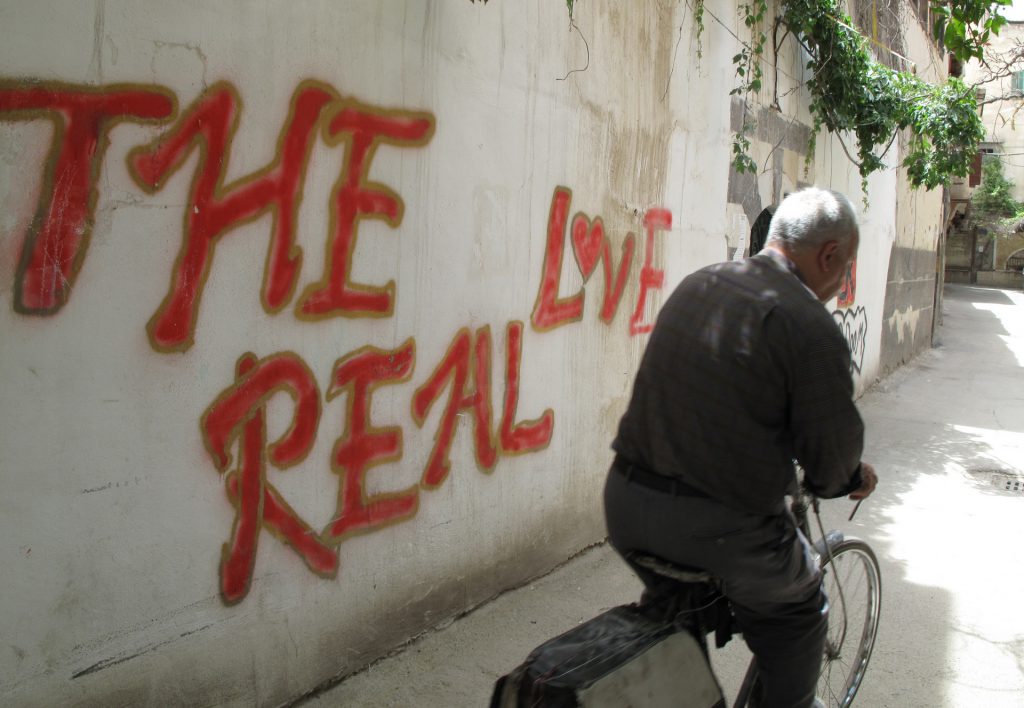
Images on this page by Susan Dirgham

